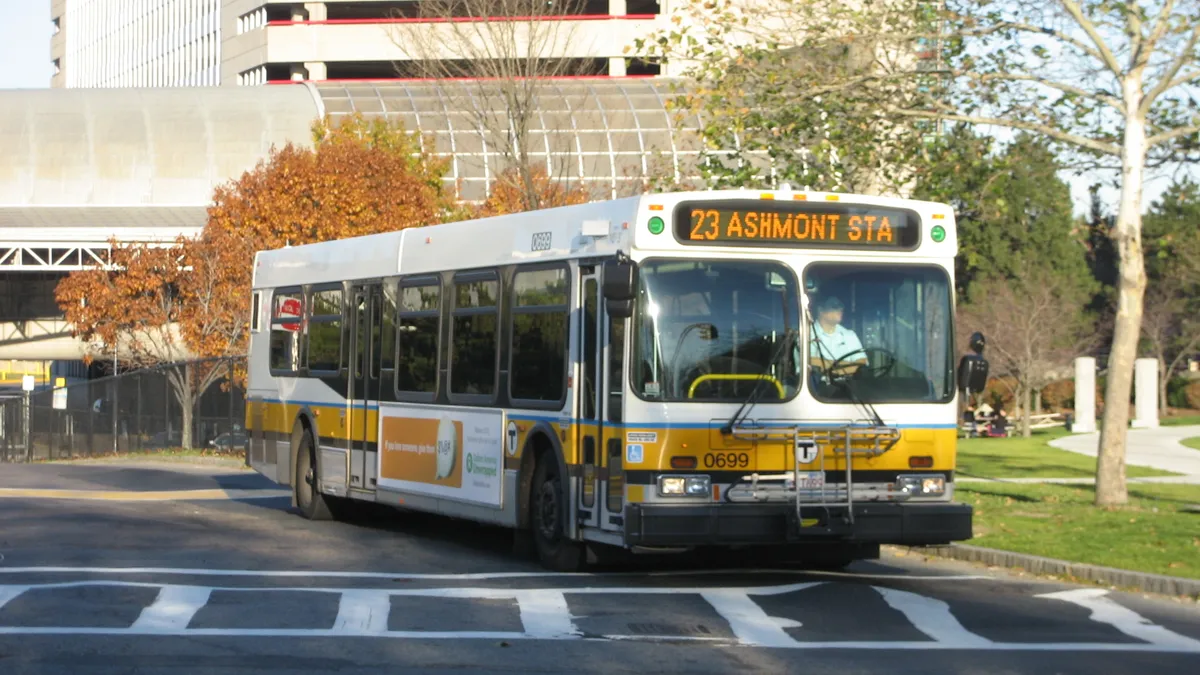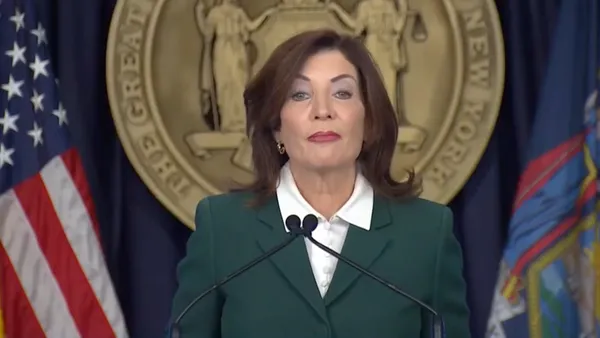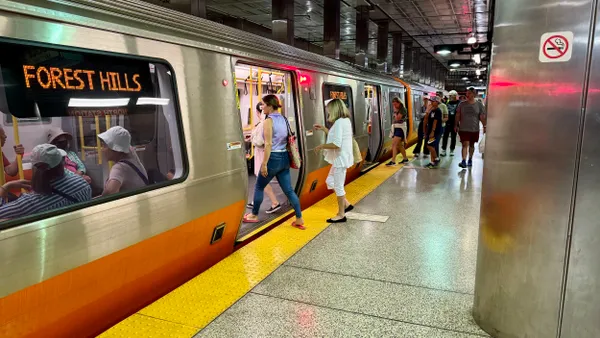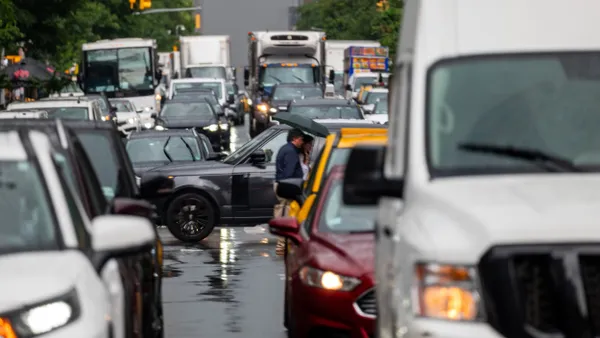Dive Brief:
- The Massachusetts Bay Transportation Authority (MBTA) — which serves greater Boston and surrounding areas — announced has spent more than $101 million since winter 2015 on making its transit system more resilient in severe weather.
- Improvements have included upgrading rail tracks and signals, investing in snow removal equipment and adding propane heaters and covers to the existing infrastructure to improve switch functions. More improvements are in the works and will continue in the weeks leading up to the start of this winter, including adding more backup power equipment.
- The plan also involves connecting and communicating more with customers, especially through transit alerts and social media.
Dive Insight:
Every region has its transportation challenges; in the Northeast, a major challenge comes in the form of weather. MBTA's preparations are essential to ensuring the Boston area continues to function properly regardless of weather conditions, considering the area receives an average of 43 inches of snow every winter and much of its transportation infrastructure is exposed to harsh outdoor conditions.
By performing ongoing resilience improvements, MBTA prevents against a system disaster that could leave riders stranded in dangerous conditions. Not all cities heavily weigh weather risks or invest in these types of upgrades, and a winter storm can mean a widespread transit shutdown or severely delayed and reduced service. MBTA's upgrades to its switch functions not only improve system reliability, but also rider safety.
MBTA wisely recognized that actual transit service is not the only factor to remaining resilient — communication also boosts the system's operations. Strengthening communication with riders increases transparency and trust. In addition, calling on transit users to keep in touch via social media and to plan now for their winter commutes creates shared responsibility.











